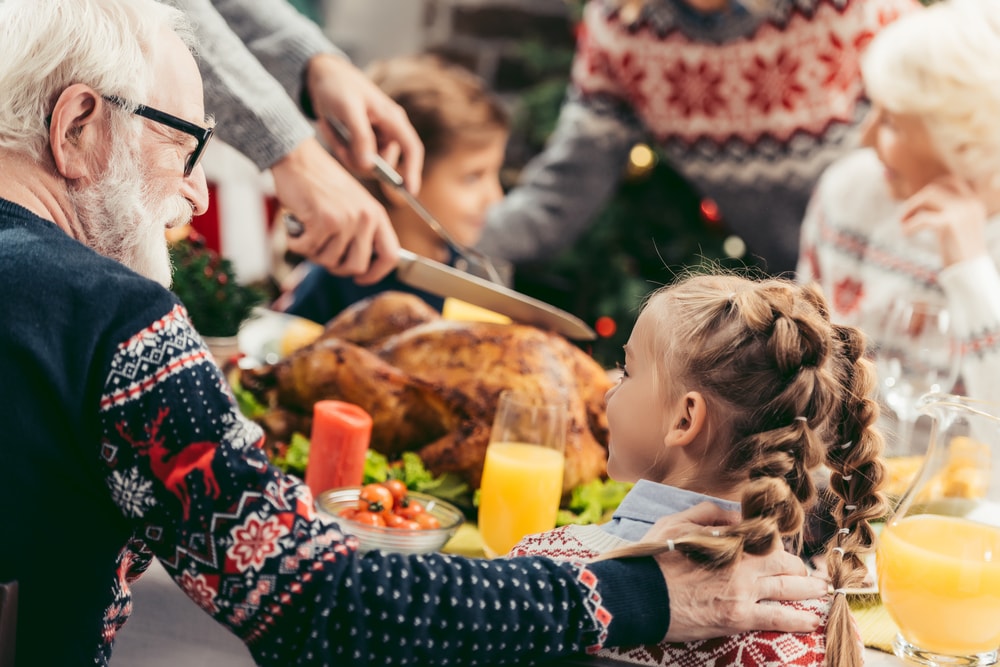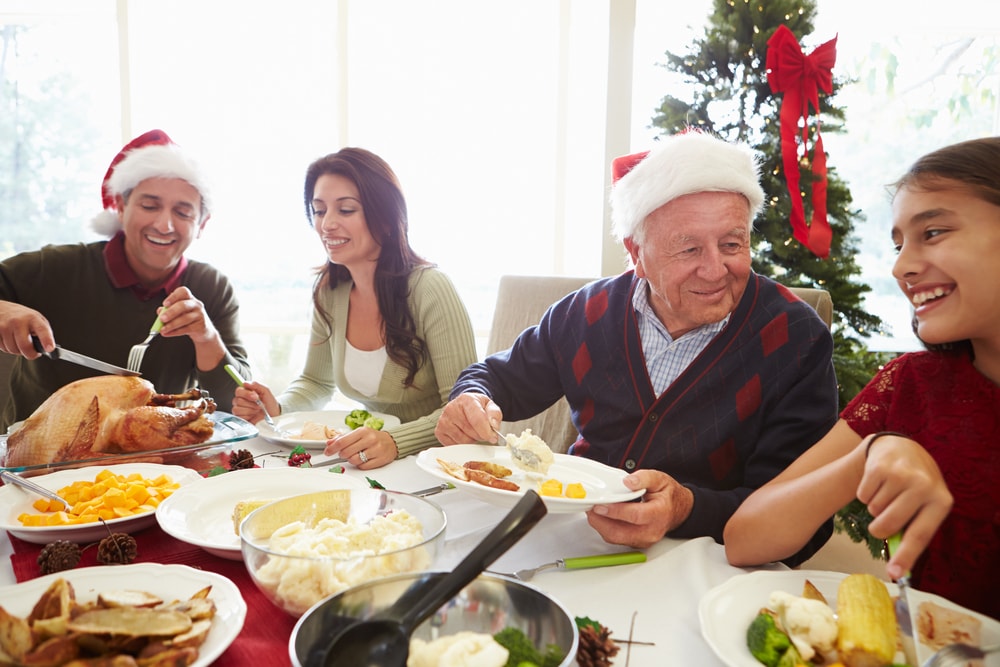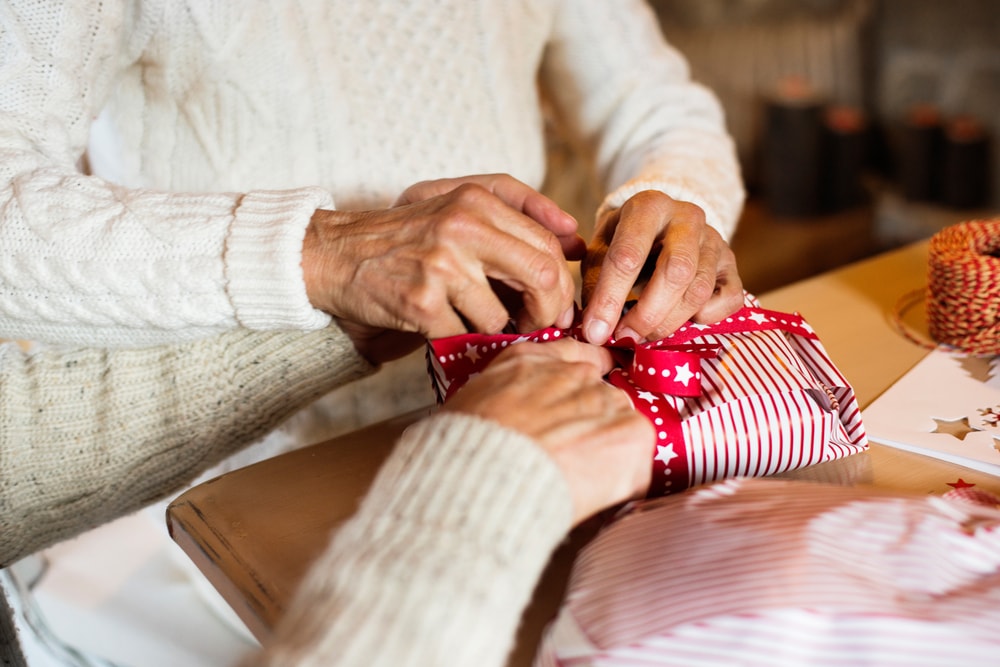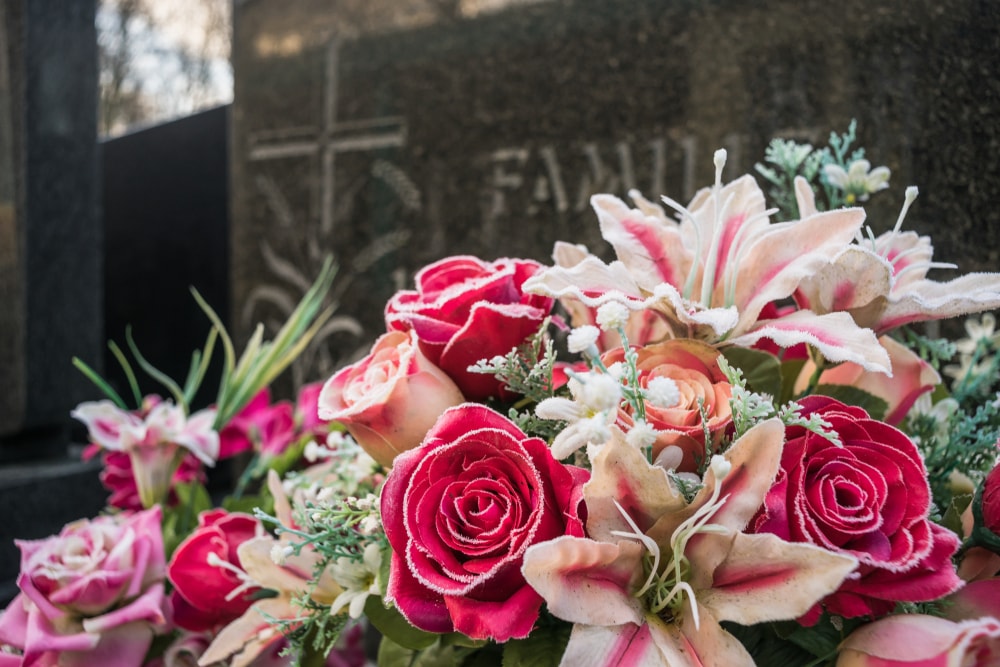

During the holidays, feelings of grief may feel even closer to the surface. Even if it’s been years since the death occurred, the family togetherness of the holidays can bring out fresh emotions. And that’s okay. It’s completely normal to feel this way and to miss someone who’s no longer here.
To help you turn your grief into healing action, consider creating a keepsake craft that will honor your loved one’s memory and bring a little comfort to your own heart. And when appropriate, don’t be afraid to invite the kids or grandkids into the process!
8 Christmas Keepsake Crafts to Honor a Loved One’s Memory
Some of these crafts are harder than others, so either choose one that fits your craft level or be prepared to learn a new skill. You can do it!
1. Commemorative Candle

With commemorative candles, you could purchase a candle in your loved one’s favorite scent or color. To personalize it a bit more, you could write their name on the candle with glitter pens or gemstones. Alternatively, you could get a white candle and create a candle wreath of their favorite flowers or make your own candle with special scents and add-ins. Or, if you just don’t trust your crafting abilities, you could go online to Etsy or a similar site and choose a memorial candle there.
2. Memorial Ornament

If you’d rather create a memorial ornament for the tree, there are so many websites out there with instructions on how to create the perfect one – with levels from beginner to advanced. You could get a picture frame ornament and have your loved one’s name engraved on it. If they particularly loved reindeer or elves, you could put together an ornament based on these themes. You could also create a quilted ornament using fabrics with meaningful imagery. The possibilities are vast; all you have to do is select the one that appeals to you personally.
3. Decorative Wreath

For those who love beautiful wreaths, creating a memorial wreath may be a good option. You could display it in your home or place it at a loved one’s final resting place. The design is entirely up to you, but you could use seasonal flowers, photos, miniature items to represent your loved one’s favorite things, or even add a few of their preferred Christmas candies. Alternatively, you could create an ornament wreath, using their favorite ornaments to fill in the wreath. There’s no right or wrong when it comes to personalizing the wreath. Here’s a tutorial to get you started.
4. Christmas Stocking

Christmas stockings are a staple in many homes during the holiday season, and they are usually displayed in a prominent place in the home. If you’d like to keep your loved one’s memory near the forefront, you might consider sewing a memorial stocking. You can personalize the design and add their name to it. Then, when it’s placed with the other stockings, you will have a comforting, visual reminder of the person you love. You can even encourage family members to write down memories and slip them into the stocking over the holiday season.
5. Personalized Pillow Cover

Even though they may not seem like it, pillow covers are easier to make than you might think. The biggest question is – what fabric will you use? And do you want it to say anything? You could have your loved one’s picture printed on fabric to use on the pillow. Or you could monogram a quote from their favorite Christmas movie. To make it even more personal, you could use articles of your loved one’s clothing to design the pillow cover. All of these options will create a sweet keepsake you can cherish for Christmases to come.
6. Memory Chain Garland

Perhaps the easiest craft option on the list is to create a memory garland to lay on your mantle or wrap around a staircase or doorway. All you need is paper, scissors, tape/stapler, possibly string, and a few people to help. As you put together each piece of the paper chain, write down special memories of your loved one or things about them that you are missing this holiday season. As you talk together and reminisce, you may find that the ache in your heart lessens as you take time to share special moments and remember your loved one’s life.
7. Memory Table Runner

Do you enjoy decorating with table runners? Then this keepsake craft may work well for you. The design portion is entirely up to you. Maybe you want to keep the holiday theme but add some fabric photos of your loved one on Christmases past. Or you could add other personalized elements, like a border in their favorite color. Remember to draw out your design first, so you get a visual of what it will look like. And if you’d like to include the family in the final product, leave space for people to write down favorite Christmas memories with fabric pens.
8. Memorial Stuffed Animals

If there are children or grandchildren in your life, you could sew or knit memorial stuffed animals as a gift. You can include a small tag on the animal with a special message from the person who has died, like “I love you” or “I miss your hugs.” You could also use a lost loved one’s clothing or leftover yarn as the chosen fabric for memorial animals. In this way, there is an added element of personalization to the gift. When the child is really missing your loved one, they can squeeze the animal and find comfort. And as they grow older, it will continue to be a cherished reminder of both you and the person who has died.
If none of these Christmas keepsake craft ideas appeal to you, not to worry! This list is far from comprehensive. Just do a quick search online, and you will find a treasure trove of options to consider. But no matter what craft idea you decide to go with, may creating something to honor your loved one’s memory soothe your heart and comfort your soul this holiday season.




































 Thirdly, when the day comes that your loved one is gone, hopefully after a long and fulfilling life, you can take the information you’ve gathered and create a meaningful funeral service. Additionally, if you video your interviews, you will have priceless footage to use in the creation of a
Thirdly, when the day comes that your loved one is gone, hopefully after a long and fulfilling life, you can take the information you’ve gathered and create a meaningful funeral service. Additionally, if you video your interviews, you will have priceless footage to use in the creation of a 











 Candles have long been used to as a symbol for remembrance. Keeping the light burning signifies that the memory of a loved one still shines bright. This Christmas season, consider lighting a candle in honor of the person you’ve lost. You can place the candle in a special place and take turns lighting the candle through the season. This way, everyone has a chance to actively remember the person who has died.
Candles have long been used to as a symbol for remembrance. Keeping the light burning signifies that the memory of a loved one still shines bright. This Christmas season, consider lighting a candle in honor of the person you’ve lost. You can place the candle in a special place and take turns lighting the candle through the season. This way, everyone has a chance to actively remember the person who has died.
 For this simple idea, all you need are biodegradable balloons and a sharpie. Blow up the balloons, have each person write a special message on their balloon, and then, release them to the sky. This practice is actually more meaningful than you might think, and it’s an easy way to get everyone involved. But remember – get biodegradable balloons that are friendly to the environment.
For this simple idea, all you need are biodegradable balloons and a sharpie. Blow up the balloons, have each person write a special message on their balloon, and then, release them to the sky. This practice is actually more meaningful than you might think, and it’s an easy way to get everyone involved. But remember – get biodegradable balloons that are friendly to the environment.




















